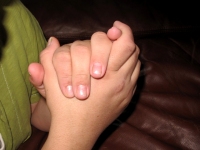At this point in history, King Hezekiah was ruling righteously in Judah. He had led the people to return to worship of the Lord and to turn away from idolatry and wickedness. Covenants were made and the work of the temple was a priority again. Hezekiah and his people were blessed for these choices. Meanwhile, the rest of Israel continued in their wicked ways. Without the promised protection of the Lord, they were prey to the surrounding nations, including Assyria. This enemy had been successful in taking much of the land of Israel around Judah. Hezekiah worked to stop their bondage to Assyria, by refusing to pay tribute to them, so the Assyrian king, Sennacherib, responded with the following:
1 After these things, and the establishment thereof, Sennacherib king of Assyria came, and entered into Judah, and encamped against the fenced cities, and thought to win them for himself.
2 And when Hezekiah saw that Sennacherib was come, and that he was purposed to fight against Jerusalem,
3 He took counsel with his princes and his mighty men to stop the waters of the fountains which were without the city: and they did help him.
4 So there was gathered much people together, who stopped all the fountains, and the brook that ran through the midst of the land, saying, Why should the kings of Assyria come, and find much water?
5 Also he strengthened himself, and built up all the wall that was broken, and raised it up to the towers, and another wall without, and repaired Millo in the city of David, and made darts and shields in abundance.
6 And he set captains of war over the people, and gathered them together to him in the street of the gate of the city, and spake comfortably to them, saying,
7 Be strong and courageous, be not afraid nor dismayed for the king of Assyria, nor for all the multitude that is with him: for there be more with us than with him:
8 With him is an arm of flesh; but with us is the Lord our God to help us, and to fight our battles. And the people rested themselves upon the words of Hezekiah king of Judah.
The army of the Assyrians had entered the land of Judah and began to attack its cities. Hezekiah called a counsel of the leaders in Judah, and it was decided to stop the water outside of the city of Jerusalem, so that the enemy would not have that resource. Many of the people helped them to block the waters. The king also worked to strengthen the defenses of the city, by repairing broken walls (attacked by Israel previously, and broken down), raising towers and walls of fortification, and making weapons. Army captains were placed over the people, and Hezekiah told them not to fear the king of Assyria or his army. He reminded them to be strong and courageous, because they had the Lord on their side and far more help came with that, than the Assyrian army had with them. The men of Assyria trusted completely in the strength of their men. The people of Jerusalem were comforted by his words and relied on them.
Hezekiah did the right things in his role as ruler over this people. He saw an enemy and so he worked to prepare and protect his people. Not only did he seek to do this with physical things like weapons and walls, but he sought to do this with the Lord as well. He showed his humility in responding this way. He seems to have known that they could not or must not boast in their own strength. They would need the Lord and if they had faith in Him, the Lord had promised to fight their battles.
We, like Hezekiah have enemies coming upon us. Some may be dealing with battles physically and all of us are waging a spiritual battle with evil, even if we do not realize it. When, we recognize the enemies in our lives, we need to follow the example of Hezekiah and prepare for ourselves and for those who we watch over. The best protection and preparation we can have will not do the job to its fullest, without our choosing to also invite the Lord to be on our side. We need faith in Christ and trust in God.
9 After this did Sennacherib king of Assyria send his servants to Jerusalem, (but he himself laid siege against Lachish, and all his power with him,) unto Hezekiah king of Judah, and unto all Judah that were at Jerusalem, saying,
10 Thus saith Sennacherib king of Assyria, Whereon do ye trust, that ye abide in the siege in Jerusalem?
11 Doth not Hezekiah persuade you to give over yourselves to die by famine and by thirst, saying, The Lord our God shall deliver us out of the hand of the king of Assyria?
12 Hath not the same Hezekiah taken away his high places and his altars, and commanded Judah and Jerusalem, saying, Ye shall worship before one altar, and burn incense upon it?
13 Know ye not what I and my fathers have done unto all the people of other lands? were the gods of the nations of those lands any ways able to deliver their lands out of mine hand?
14 Who was there among all the gods of those nations that my fathers utterly destroyed, that could deliver his people out of mine hand, that your God should be able to deliver you out of mine hand?
15 Now therefore let not Hezekiah deceive you, nor persuade you on this manner, neither yet believe him: for no god of any nation or kingdom was able to deliver his people out of mine hand, and out of the hand of my fathers: how much less shall your God deliver you out of mine hand?
16 And his servants spake yet more against the Lord God, and against his servant Hezekiah.
17 He wrote also letters to rail on the Lord God of Israel, and to speak against him, saying, As the gods of the nations of other lands have not delivered their people out of mine hand, so shall not the God of Hezekiah deliver his people out of mine hand.
18 Then they cried with a loud voice in the Jews’ speech unto the people of Jerusalem that were on the wall, to affright them, and to trouble them; that they might take the city.
19 And they spake against the God of Jerusalem, as against the gods of the people of the earth, which were the work of the hands of man.
20 And for this cause Hezekiah the king, and the prophet Isaiah the son of Amoz, prayed and cried to heaven.
While Sennacherib was beseiging Lachish (part of outer cities of Judah), he sent servants to speak with Hezekiah (see also 2 Kings 18). His message to the people of Jerusalem, was that they were trusting Hezekiah, who was allowing them to die of thirst and hunger while the Assyrians beseiged their city. Also, that Hezekiah told them to trust their God, but had also removed all the high places of worship and altars in the land aside from the temple. Sennacherib knew that if his servants could persuade the people to doubt their leader, they would give up. The servants asked them if they did not know already what the Assyrians had been able to do to all the other lands, where they depended on their gods. They were not protected from the Assyrian army by their gods. They told them their god would not be any different than this and they should not trust the words of Hezekiah. The messages continued to speak against the Lord and Hezekiah, who served him. The Assyrian messengers tried to take the city by yelling out to those of Jerusalem who were on the wall, in attempts to scare them. As a result of these efforts of the enemy, Hezekiah and his chief advisor, the prophet Isaiah, prayed to God.
21 And the Lord sent an angel, which cut off all the mighty men of valour, and the leaders and captains in the camp of the king of Assyria. So he returned with shame of face to his own land. And when he was come into the house of his god, they that came forth of his own bowels slew him there with the sword.
22 Thus the Lord saved Hezekiah and the inhabitants of Jerusalem from the hand of Sennacherib the king of Assyria, and from the hand of all other, and guided them on every side.
23 And many brought gifts unto the Lord to Jerusalem, and presents to Hezekiah king of Judah: so that he was magnified in the sight of all nations from thenceforth.
In time, the Lord sent an angel to the Assyrian army to destroy their leaders and captains. Sennacherib returned to his own land in shame. When he entered the temple of his god, his own sons went in and killed him. Hezekiah and the people of Jerusalem were protected from the Assyrians and from any other nations by the hand of the Lord. Gifts were sent to Jerusalem to honor the Lord, as well as to Hezekiah the king. Many people from other nations saw him as a great leader.
24 In those days Hezekiah was sick to the death, and prayed unto the Lord: and he spake unto him, and he gave him a sign.
25 But Hezekiah rendered not again according to the benefit done unto him; for his heart was lifted up: therefore there was wrath upon him, and upon Judah and Jerusalem.
26 Notwithstanding Hezekiah humbled himself for the pride of his heart, both he and the inhabitants of Jerusalem, so that the wrath of the Lord came not upon them in the days of Hezekiah.
Hezekiah became deathly sick and prayed to the Lord. The Lord blessed him and gave him a sign (see also 2 Kings 20), but Hezekiah became prideful and did not do as he should have done at that point. The wrath of the Lord came upon Hezekiah and his kingdom, and they were humbled. Then, the Lord turned away his wrath.
27 And Hezekiah had exceeding much riches and honour: and he made himself treasuries for silver, and for gold, and for precious stones, and for spices, and for shields, and for all manner of pleasant jewels;
28 Storehouses also for the increase of corn, and wine, and oil; and stalls for all manner of beasts, and cotes for flocks.
29 Moreover he provided him cities, and possessions of flocks and herds in abundance: for God had given him substance very much.
30 This same Hezekiah also stopped the upper watercourse of Gihon, and brought it straight down to the west side of the city of David. And Hezekiah prospered in all his works.
Hezekiah prospered greatly, making treasuries and storehouses for all his riches and goods, animals stalls for his flocks, and more. He rerouted water directly to city of David as well. The Lord had blessed him in all that he did.
31 Howbeit in the business of the ambassadors of the princes of Babylon, who sent unto him to inquire of the wonder that was done in the land, God left him, to try him, that he might know all that was in his heart.
The Lord did not direct Hezekiah in all that he did with his interactions with the leaders of Babylon. They had questions about the blessings that had been done for Jerusalem, and the Lord did not interfere in this experience to test Hezekiah’s faith. This life is a time for us to prove our character to God, that He will see if we are ready to abide by his law. Our actions will be judged by God and we need to be allowed the freedom to make choices without being compelled or directed in all things. We will each have our own faith tested in some way just as Hezekiah was tested.
32 Now the rest of the acts of Hezekiah, and his goodness, behold, they are written in the vision of Isaiah the prophet, the son of Amoz, and in the book of the kings of Judah and Israel.
33 And Hezekiah slept with his fathers, and they buried him in the chiefest of the sepulchres of the sons of David: and all Judah and the inhabitants of Jerusalem did him honour at his death. And Manasseh his son reigned in his stead.
Isaiah, as the living prophet in the days of Hezekiah, kept a record of the things that Hezekiah did as he ruled the people of the Lord, which can be read in the book of Isaiah. In addition to his record, the rest of Hezekiah’s act were recorded in the book of the kings, which was traditionally kept for leaders in Israel. Hezekiah eventually passed away and was honored by the people at the time of his passing, as a great king. His son, Manasseh, became the next king of Judah. Hezekiah did great things for the people of Judah and did what he could to influence those in all of Israel for good. He believed in God and led in a way that showed it. Moreover, he trusted that the Lord would protect and provide for those who followed Him. This trust comforted and guided the people of Jerusalem, so they did not give in to the threats of their enemies. As a result of their faith, the Lord was able to protect them and prosper them. Each of us faces difficulty and even enemies in our lives. The Lord is ready and willing to help even the least of us. He will not, however, interfere in our lives without our desire for his help. He will not force his will upon us. We need to believe and ask in faith for the help of the Lord. When we then, go forward and follow his guidance with faith in the Lord, he will help us. God and his angels are greater than any trial we face in this life. We can overcome all things, with Him on our side.





